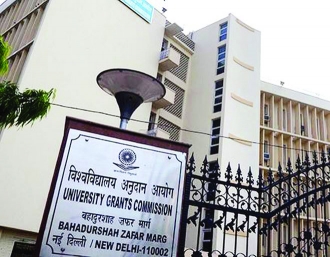The National Democratic Alliance on Wednesday announced its ambitious plan to reform higher education in the country. The Human Resources Development Ministry, headed by Prakash Javadekar, announced that it has drafted a bill titled ‘Higher Education Commission of India (Repeal of UGC Act), 2018’, which plans to scrap the University Grants Commission and replace it with a ‘Higher Education Commission’.
Education is one sector which needs to mutate as knowledge sources and their application become more varied and complex in probing times and the regulatory systems or norms, therefore, need to rise above orthodoxies and become dynamic. The HRD Ministry has done just that by preparing a draft Act that will scrap the UGC with a new all-pervasive Higher Education Commission of India. According to the proposals, which HRD Minister Prakash Javadekar has left open to amendments, the new panel would solely look into academic matters and uniformity of standards in providing quality instruction. Monetary grants would be the purview of the ministry so that the expert commission would be free of bureaucratese and instead concentrate on things that matter — mentoring institutions, ensuring meritocracy, encouraging research, standardising the quality of training, identifying bogus institutions, monitor faculty benchmarks and, in short, ensure autonomy of institutions. Higher education in India is indeed in a grave crisis mode as universities in our hinterland, too, have made it to the global index whereas, except IITs, none of our institutions are in the wanted list. If recent entrance test results to advanced courses are any indication, then the meritorious performances are a dismal ratio and need a quick fix. The rote learning method needs to be eliminated and replaced by one that assesses comprehension and application of acquired knowledge. Our students need to be skilled and industry-ready and capable of driving innovation, rather than becoming formulaic clones. Other countries like UK and the Australia have already moved to independent commissions of higher education.
Absolutism of the UGC has had many casualties. Vice-Chancellors have had to be at the beck and call of an official for routine fund clearances, leave aside seeking one for innovations. A performance-linked funding pattern that would encourage competitive scholarship, was never considered. UGC has not quite been able to attract world-class faculty to teach at Indian universities in a visiting capacity. We have not been able to benchmark ourselves internationally as an education hub the way we have in the health sector, medical tourism now being the most sought after. Even China has worked towards evolving a strong university culture that is attracting students from across the world, particularly the region. The UGC’s ad hoc system of rewarding research, based on academic performance, rather than subjecting it to expert reviews, have discouraged path-breaking thought. Besides, there is a multiplicity of authorities for technical education, be it the AICTE and for medical courses MCI, that often run at cross purposes and add to the confusion with overlapping functionalities. Of course, it is brave of the Modi Government to push through well-intentioned reforms that have been in the lab since UPA days. But it has practical challenges to meet. Will the higher education reforms be effective enough without an overhaul of the National Education Policy? This would make the new move look knee-jerk. Then there is the task of keeping it apolitical. By subjecting matters of appointment in leadership positions at all universities, even if they are established under state law, to the panel may invite tendencies of favouritism, which is a thin line to walk. Even if you free up teachers, can politicisation of students be tamed? Most importantly, the assessment system itself has to be graded and appropriate experts brought in to understand premium quality of elite institutions, which need to be given more room for autonomy. Most important though is filling up teaching vacancies in Central universities across the country, including the prized AIIMS. Some varsities in far-flung states have a shocking gap of faculty vacancies by over 50 per cent. Can an ecosystem be developed at institutions set up in backward pockets that will be attractive enough to draw in quality teachers in the first place? These grassroots issues need to be addressed on an emergency basis too.
Writer: Pioneer
Courtesy: The Pioneer








 OpinionExpress.In
OpinionExpress.In















Comments (0)